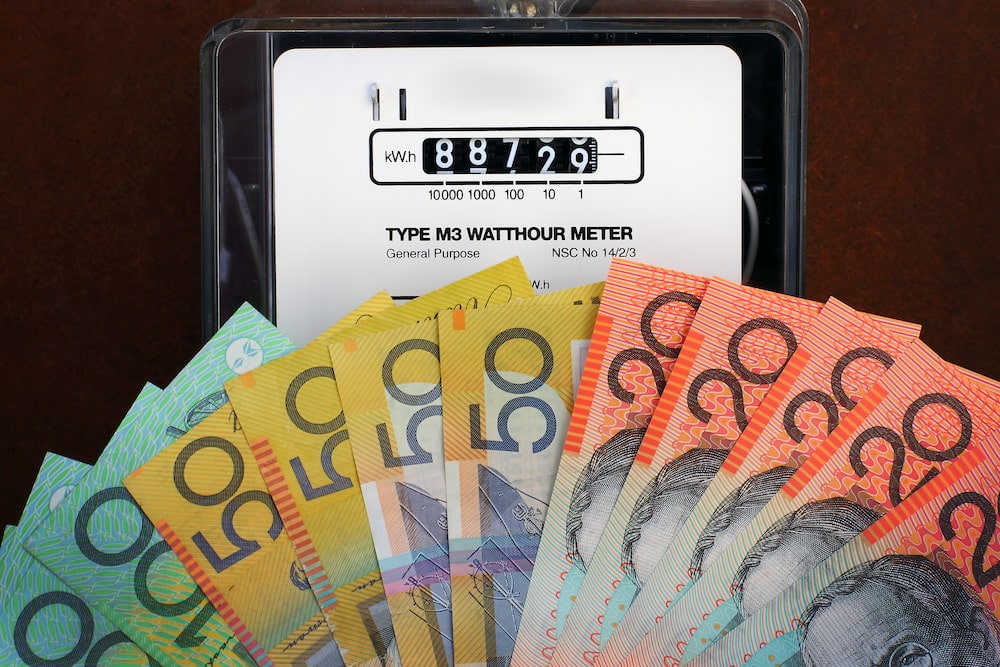Seventy thousand ACT households stand to gain by up to $400 a year, Chief Minister Andrew Barr announced this morning, now that a bill making it easier for Canberrans to get better energy deals unanimously passed the Legislative Assembly.
The Utilities Amendment Bill was introduced by Mr Barr and Shane Rattenbury, Minister for Water, Energy and Emissions Reduction, in April.
Mr Barr tasked the Independent Competition and Regulatory Commission (ICRC) to investigate better comparability and transparency of electricity offers; the Bill is based on their recommendations.
Reference price is a clue through the labyrinth
The Bill introduces an electricity reference price framework, a comparison tool or benchmark set annually to broadly reflect the average customer and a possible annual price of electricity, Mr Rattenbury said.
The Government will set this reference price; Mr Barr as Treasurer and Mr Rattenbury will approve it, based on advice from the ICRC.
“The market of electricity plans has become a confusing labyrinth for consumers,” Mr Rattenbury said. “This framework seeks to demystify the electricity price landscape for Canberrans, and enable them to make better-informed choices regarding electricity offers.”
Retailers will use this price for comparison in their advertising, ensuring that all offers and discounts are compared against the same benchmark.
They must also provide customers with a reference bill for a typical consumer, stating the difference between their price and the reference price when they make an offer – which can be up to $400 a year.
“The reference price allows customers to compare a simple apple-for-apples price across contracts,” Mr Rattenbury said.
Better deals for customers
He said electricity retailers must also inform customers about better deals, telling them if they would save money on a cheaper contract.
Although prices in the ACT are relatively lower than other capital cities, due to regulation, many consumers still pay more than they should. Four in 10 (40%) ACT electricity customers and more than half of small businesses are on a standard electricity contract.
“Switching to the cheaper market offers could literally save these customers hundreds or even thousands of dollars every year,” Mr Rattenbury said. “But many customers don’t realise, or find the array of different contracts too complicated.”
For instance, more than 80% of Canberrans are with ActewAGL, paying a standard flat tariff, Leanne Castley, Shadow Minister for Water, Energy and Emissions Reduction, pointed out.
According to the St Vincent de Paul’s report on ACT Energy Prices (2019), households could save $505 each year on electricity costs by switching from ActewAGL’s standing offer to their market offer.
By not doing so, Ms Castley said, ACT customers effectively paid a ‘loyalty tax’.
“We are paying more than we should be. For many of us, much more. That money should be in our pockets, not the electricity retailer’s. There are better deals on offer, and there are now also a host of other retailers in the market, but the consumer is none the wiser. Thank goodness that is soon to change.”
Parties agree
ACT Labor and the ACT Greens agreed to the initiative under the Parliamentary Agreement.
“Once this legislation is passed and put in place, it’s a framework that will empower residential customers and small businesses to find the best electricity offer available in a competitive market – and more importantly to save hundreds and thousands of dollars each year,” Mr Barr said in April.
“It’s the government’s hope that greater transparency and comparability of prices will promote better competition in the market. The competition is in the interests of consumers.”
The Canberra Liberals endorsed the bill. Ms Castley said it gave more information and buying power to consumers and families, and eased the cost of living, particularly for low-income households.
Similar schemes have been introduced in NSW, South Australia, Queensland and Victoria.
For more news:



